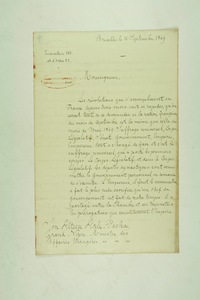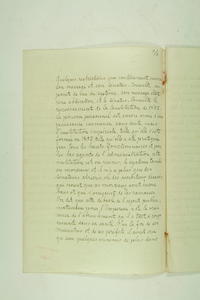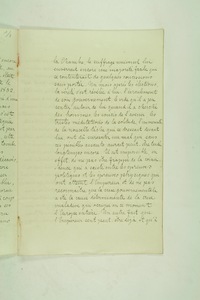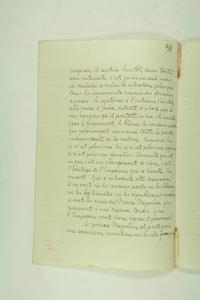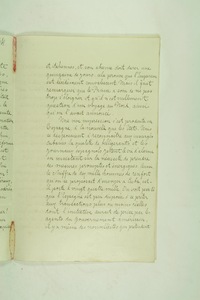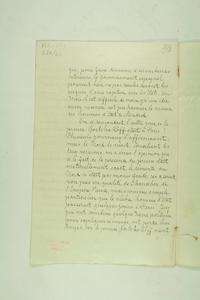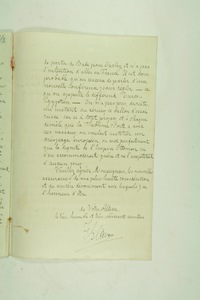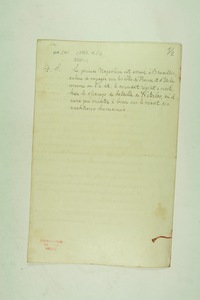Ottoman Diplomats
Letters from the Imperial Legation in Brussels (1849–1914)
Synopsis
Glavany expresses his surprise about the fast development of the political reforms in France, and stresses the big sacrifice made by the Emperor Napoleon III: he divided the Empire’s privileges between the Chamber and the ministers. All that was left of the imperial institutions were ruins. Glavany relates these reforms to the deteriorating health of Napoleon III, and relates the French governmental crisis to the unhealthy crisis in all of Europe. He seems to feel sorry for Napoleon III, whose political heritage was being discussed (by the friends of his son, Prince Napoleon) even before the Emperor’s death. Prince Napoleon’s decision not to travel too far north testifies to Glavany’s expectations. (In a P.S. he remarks that the Prince had visited Waterloo and arrived in Brussels.) The United States intended to proclaim the Cuban rebels to be officially belligerent, to which Spain reacted by sending an army, instead of selling out Cuba. About Russian Prince Gorchakoff, Glavany wonders if he had been to Paris. He had been according to some newspapers, but this was denied by the north. Glavany notes that it was said that Gochakoff did not visit Paris as the Chancellor of Russia, but as a private person. Thus, he concludes, it would not lead to a new conference about the Turco-Egyptian conflict. The Ottoman dignity would not accept the establishment of a European court of justice for each dispute between the Sublime Porte and its vassals.
Facsimiles
How to cite
If you use this website for your own research, we kindly ask you to mention the following reference in your publications:
Consulted online at Ottoman Diplomats: Letters From the Imperial Legation in Brussels (1849–1914) (2014 Edition), Centre for Political History (PoHis), University of Antwerp, <http://dighum.uantwerpen.be/ottomandiplomats/>.
